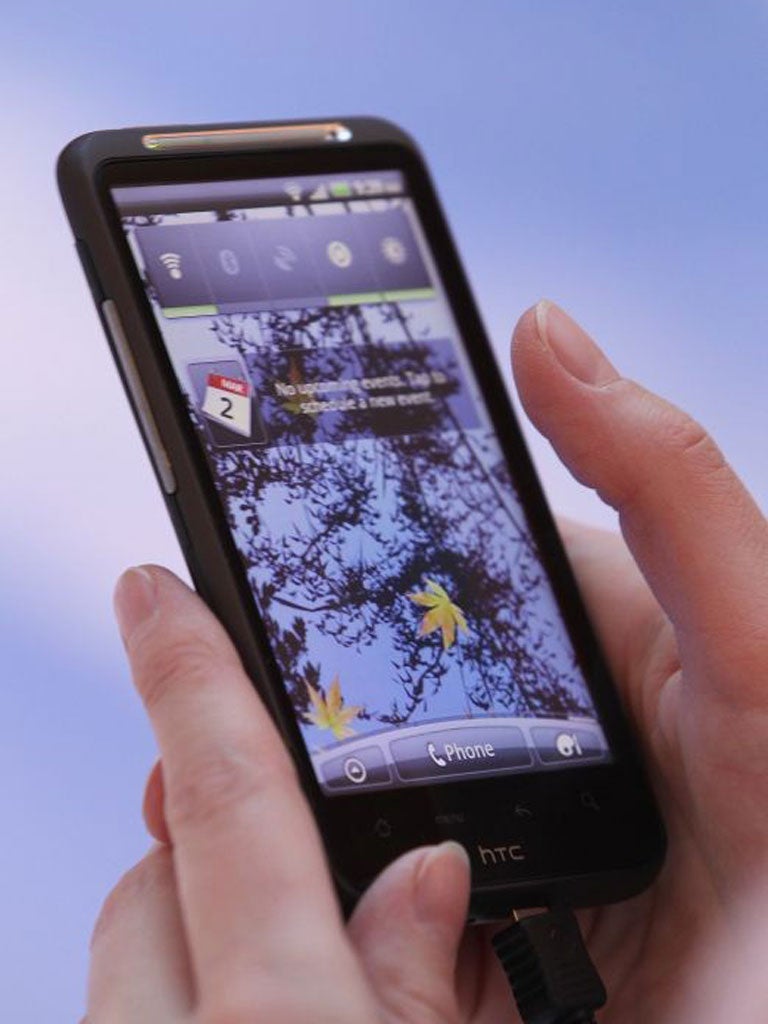Claudia Pritchard: Enjoy the here and now. The rest can wait
Trust your eyes, not your mobile

James Corden was giving his final performance in the London production of One Man, Two Guvnors last night, leaving the show to join its transfer to Broadway. This massive hit for the National Theatre has appealed to a wider audience than usual, and theatre management will be delighted that younger people are dabbling with live theatre, attracted by a big television name in the leading role. Given another five-star show, they might even book again. If they do, they might like to try another experiment – turning off their phones for the duration of the show.
From the cheap seats in the gods, it is bizarre to see patrons in the stalls checking, even sending, messages off and on throughout the course of the play – not only at One Man..., although, possibly because of the influx of a more switched-on generation, noticeably more often there. It happens at the opera, too, and at the cinema. Most of us have paid for the thrill of escaping into a different world for a couple of hours, and yet we seem reluctant to give ourselves up entirely to the parallel universe we have temporarily bought into.
Births, deaths and house purchases apart, can there be many news flashes so important that they have to be read during a Hamlet soliloquy or the reprise of Singin' in the Rain?
Back out in the daylight, this dependence on technology is kicking in to our ability to enjoy real life, too, as the first frenzy of spring demonstrates. On my walk to work yesterday through central London, Nature had pulled out all the stops – squirrels nipped through drifts of crocuses to reclaim their nutty stores as a parade of stately pelicans parted flotillas of coots, but no wing was beaten, no peanut nibbled without a camera following close behind.
Now that it costs nothing to take a duff picture and discard it, the challenge is not to achieve the best shot, but to resist the temptation to try, for reality captured is reality lost.
Some of my most vivid memories are unsupported by pictures, because even to reach for a camera would have disturbed the scene: a pair of kingfishers sitting on a railing outside my house a few yards from Tower Bridge; and a family of stoats looking me in the eye from a bank on a country lane in Kent.
In contrast, distracted by my then exciting new digital camera at the time of my elder son's graduation, I watched his steps across the stage not with my own eyes, but on a stamp-sized screen, and came away with one picture of an ant in ermine.
At the memorial service recently of John Marshall, the founder of the Opera Company, which also drew new, younger audiences by charging only £5 for a ticket, one personal characteristic was remarked upon over and over again. It was his gift for living the moment, unencumbered by either regrets or anxieties for the future. I don't think anyone left the occasion without resolving to have a go at that simplicity, which is so much harder than it looks.
The here and now is an astonishing bit of kit – everyone has a one-off version of it, and it requires no updates. Savouring the moment, without technical back-up, is like jumping without a parachute: you have only your own resources to rely upon. We have to learn to trust our senses.
In a year that promises some amazing sights – like every year, in fact – it would be a bold move to rediscover or sharpen our powers of observation and memory. Precious as snaps can be, it is possible to have an unforgettable time without benefit of photography. Splendid as communication is, it is possible to function as a human being without replying "At the theatre" to the email inquiry "Where are you?". And for those around, there would be fewer arms held high with an electronic eye at the end, fewer screens flickering in the stalls. The less we record, in short, the more we might recall.
Join our commenting forum
Join thought-provoking conversations, follow other Independent readers and see their replies
Comments
Bookmark popover
Removed from bookmarks